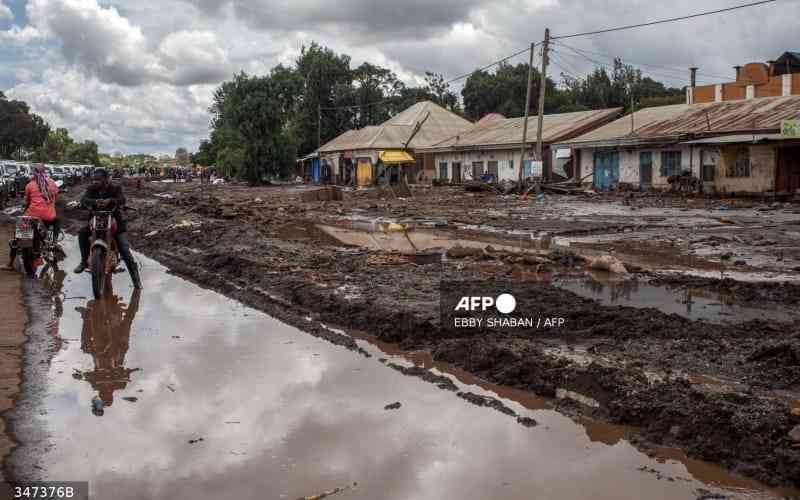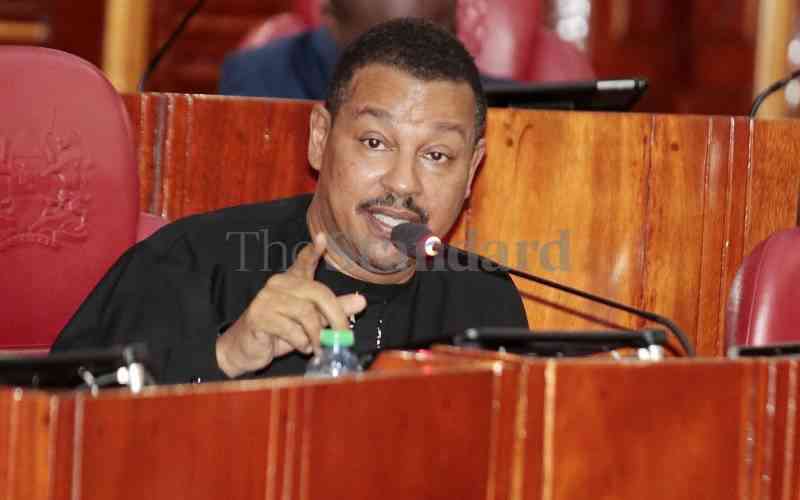Anybody landing in Kenya would be forgiven for thinking the country is at war. There are voices of discord, posturing, supremacy contests and a flurry of litigation between various constitutionally-entrenched organisations and offices. Indeed, the Commission on Revenue Allocation has voiced concern that unending wrangling and supremacy wars between agencies handling units of devolved governance are disrupting service delivery.
As armed cattle rustlers threaten the peace and security in northern Kenya and the Rift Valley, there have been disquieting murmurs that the two police formations are not working in tandem. Meanwhile, many families are grieving the loss of loved ones — police officers mercilessly mowed down in a bandit ambush.
The resultant national outrage has seen the army deployed to flush out the roving gang of killers on the back of questions about the training, preparedness of the police.
Local leaders must be at the forefront of ensuring peace not only prevails in their regions, but that it is enhanced continuously. Too many politicians are uttering statements that will only increase animosity among their people and neighboring communities.
At national level, the Senate is embroiled in an acrimonious battle for the control of turf with the National Assembly. The showdown is threatening to end up in the corridors of justice for relief or arbitration. There is talk of dragging in the Executive into this mudfight.
Devolved units are not sitting pretty either. One could say two in every three county assemblies are sitting on pins and needles as ward representatives and governors bicker over every aspect of legislation, every act of procurement and even tussles on matters of protocol at public functions.
The people’s representatives have maintained a choke-hold on each others’ throats as top unionists hurl brickbats, sue and generally play to the public gallery on any and all matters relating to membership lists and subscriptions. It is not a pretty sight.
Meanwhile, the faiths, supposed to hold the moral compass of society are a house divided. Muslims are battling radicalisation as their youthful members try to impose their will on what they consider the old guard. Christendom is also in a state of flux as various men and women of the cloth take their grievances to the courts for resolution.
Elsewhere, political parties appear to have reached some sort of ‘crisis point’. In the absence of internal party elections, some appear to be imploding, consequences of which is formation of splinter groups.
This is a grim picture that I am painting here. But it demands that we have an introspection and national conversation to determine where and why the rain is battering Kenyans. In the absence of this, the hopes and aspirations of the youth and women will be an exercise in vanity.
What ails Kenya, Dear reader?
Why do we have excellent policy plans on paper but work so hard to paralyse service delivery? Yes, this is a prayerful nation, but the continued assault on family values is slowly eating into the very fabric of society.
There is too much emphasis on negativity even as the rest of the world sees Kenya as a gem and role model worth emulating. The recent conference by the world’s top financiers in Nairobi was a shot in the arm and expression of confidence in the development path Kenyans have chosen.
What then makes individuals within our borders uneasy with this state of affairs?
Who among our leaders is willing to listen to and talk to fellow legislators rather than at them? What will it take to step back from the brink of this jagged edge and think, embrace and believe in a stronger, richer, cleverer and healthier Kenya? Who will stand up for Kenya if not the citizens themselves?
Stay informed. Subscribe to our newsletter
Kenya needs all of us to stand up and focus on the common good – that which we all aspire and want to achieve.
 The Standard Group Plc is a
multi-media organization with investments in media platforms spanning newspaper
print operations, television, radio broadcasting, digital and online services. The
Standard Group is recognized as a leading multi-media house in Kenya with a key
influence in matters of national and international interest.
The Standard Group Plc is a
multi-media organization with investments in media platforms spanning newspaper
print operations, television, radio broadcasting, digital and online services. The
Standard Group is recognized as a leading multi-media house in Kenya with a key
influence in matters of national and international interest.
 The Standard Group Plc is a
multi-media organization with investments in media platforms spanning newspaper
print operations, television, radio broadcasting, digital and online services. The
Standard Group is recognized as a leading multi-media house in Kenya with a key
influence in matters of national and international interest.
The Standard Group Plc is a
multi-media organization with investments in media platforms spanning newspaper
print operations, television, radio broadcasting, digital and online services. The
Standard Group is recognized as a leading multi-media house in Kenya with a key
influence in matters of national and international interest.








